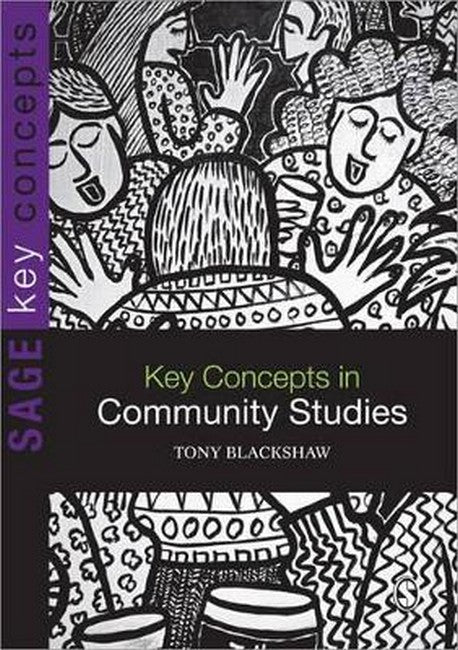Tony Blackshaw is a Senior Lecturer in Sociology of Sport & Leisure at Sheffield Hallam University and author of The SAGE Dictionary of Leisure Studies (SAGE, 2009) and Zygmunt Bauman (Routledge 'Key Sociologists', 2005)
Request Academic Copy
Please copy the ISBN for submitting review copy form
Description
Setting the Record Straight: What Is Community? And What Does It Mean Today? Community as Theory A Theory of Community Hermeneutic Communities Liquid Modern Communities Postmodern Communities Community as Method Action Research Community Profiling Community Studies Ethnography Social Network Analysis Community as Place Cosmopolitanism, Worldliness and the Cultural Intermediaries Liminality, Communitas and Anti-Structure Locality, Place and Neighbourhood Virtual Communities Community as Identity/Belonging Community and Identity Imagined Communities Neo-Tribes See Setting the Record Straight, Leisure and Its Communities, Liquid Modern Communities and Liminality, Communitas and Anti-Structure New Social Movements See Community Action Personal Communities See Setting the Record Straight, Social Network Analysis and Virtual Communities The Symbolic Construction of Community Community as Ideology Communitarianism Community Politics See Political Community and Community Action Imaginary Communities Nostalgia The 'Dark Side' of Community Utopia See Imaginary Communities Community as Policy and Practice Community Action Community Development Community Partnerships Community Policy See Political Community Community Practice See Community Development, Community Youth Work, Leisure and Its Communities Community Regeneration Community Youth Work Leisure and Its Communities Political Community Social Capital
This book is both insightful and engaging, enriched with diverse and up-to-date readings. Tony Blackshaw lays bare debates surrounding the uses and abuses of key concepts of community studies and breathes new life into community as theory and community studies as method. -- Peter Bramham I would highly recommend this book to any student who is studying communities and groups in society. The book and chapters are structured in a way that students will find it easy to move from one theme to another; to dip into relevant chapters when needed; to gain a good understanding of concepts and how and why they are applied to individuals and communities. The book encompasses both breadth and depth of key concepts and issues. This book will be compulsory reading on our Community Studies degree. -- Lesley Groom

